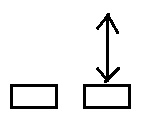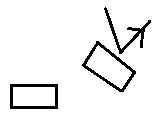When considering shot stopping abilities, other than a pro-active style limiting chances through active interceptions, a more developed goalkeeper should think about controlling their rebounds to prevent any further chances during an opposition’s attack on goal. The less chances a goalkeeper faces, the more they are doing to reduce the rate of attacks and thus scoring rate. A goalkeeper who faces a lot of shots may do so because they lack the ability to control their rebounds, allowing the opposition more scoring opportunities by not getting rid of any further chances properly (although the shots faced could be down to a leaky defence!), so it is important to think about your rebound control and how it affects your performances.
Controlling your rebounds
Unlike other sports, a hockey goalkeeper’s kit mean they end up blocking pretty everything shot at them, making rebound control more complicated and a delicate process. Hockey is special in that rebounds cannot be ‘deadened’ or eliminated, preventing any further scoring opportunities in close because we have nothing to catch with! Whereas these goalies are predominantly more able to catch and hold on to the ball; in football they are taught to catch, in ice hockey they can catch with the glove and even in something like floor ball they can catch shots, in (field) hockey, we are unique in having to using blocking surfaces to push the rebounds away for us. As a result, you have to be more pro-active with your rebound control, thinking ahead to where you can see the space to put the ball into and striving to drive through the ball to get distance on the clearance.
Redirecting on the save
To actively control your rebounds, you should be redirecting during the save, rather than blocking a ball and letting it go back out directly in front of you, which hands the opposition a golden opportunity at goal. To actively get rid of a second chance after the save, you need to be directing it away from any close-in attackers, finding a space to put the ball to, to make the opposition’s chance to poke away or slam home a rebound, harder. This is difficult in itself, relying on you pre-scanning the space in front of you and your awareness of what is going on and who is where. Physically, you want to have active hands and legs, pushing in to the save and turning your kit as it hits you to angle it away to safety. Again, as harped on about before, driving through with an attacking motion will improve your ability to control your rebound as you work on actively pushing through the save.


In the following clip, you can see the Kamong goalie, an elite ’keeper in the Hoofdklasse level, clearing a ball through a crowd of players, which is a skill in itself!
http://www.youtube.com/watch?v=vPJblaHaSZE
‘Dead rebounds’ and clearing after the save
A remember that has not been sufficiently ‘killed’ and you have simply deadened the shot or not put far enough away to safety, obviously puts you in a precarious position. If this happens, then you want to react intensely with an active mindset, rushing out to reach it and kick it away. Kicking away seems the safest option; charging out to clear and attacking clearances as written about in the past will give you a better chance of getting rid of the ball. Similarly, if you do your best to make the stop but can’t get rid of the rebound, then get as close to the ball as possible and kick away with distance to stop any further scoring opportunities.
Diving as an emergency
If you don’t have time to reach the ball but it is close to you and you want to push away the ball, then diving in to clear could be used as an emergency procedure. I may be wrong to make a sweeping statement, but using the stick seems more popular in Holland and Belgium, but I have seen footage of Russ Meadows, the Australian goalie, diving away to clear a rebound off a Pakistani shot in the Azlan Shah tournament a while ago, although they did put away the rebound. It’s more of a last ditch move as you’re putting yourself out of the play by going to ground (and it will be difficult to get back to your feet quickly enough!), so should be used when you feel the chances are stacked against and unable to get your defenders help. Dive in as close as you can and then use your stick to sweep away the ball as far away as you can!
Control rebounds!
Ultimately, you want to do your best to control rebounds. It is no good simply stopping shots and blocking them, you really have to be active in getting rid of the ball! Reducing rebounds and getting them clear will reduce the chances of being scored on as you limit the shooters to a few chances, improving the way you play and increasing your chances of a clean sheet!
Pointers:
- Drive through the ball to get power behind the save
- Turn your kit as you push into the save, to redirect the ball away with force
- Pre-scan the area to look for a place to put the rebound
- Have active hands and legs in front of your body to push away the redirect
- Attack clearances to get rid of another chance
- Dive to clear only in an emergency!